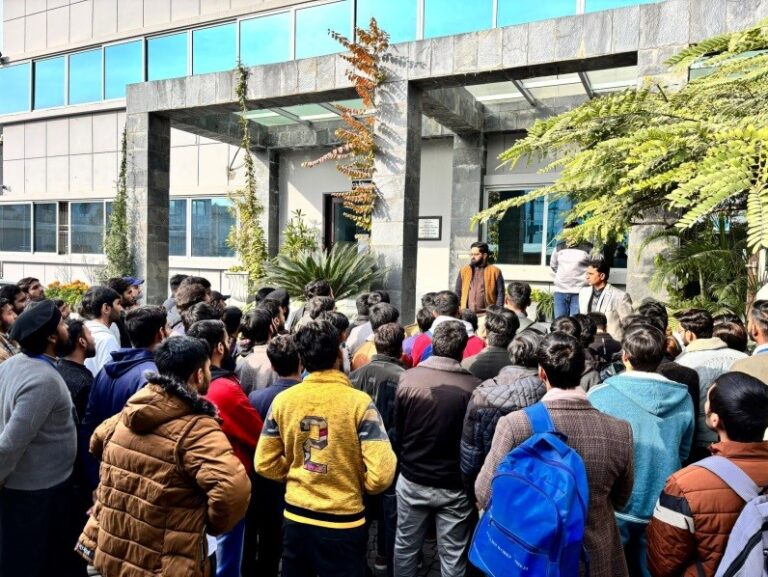“Ignored Reality: Industrial Education in Sialkot Schools"

Written By: Dr. Raza ullah Shah
Statistical Research and Sustainability Expert
Introduction
Sialkot holds a prominent position among Pakistan's industrial cities, boasting a Long history of industrialization. Renowned for its production and export of diverse goods like surgical instruments, musical instruments, sports goods, leather goods, and textile items, the city contributes significantly to Pakistan's foreign exchange earnings, ranking as the second-largest source due to exports and remittances from overseas workers. The city's international fame can be attributed to the exceptional craftsmanship and entrepreneurial spirit of its residents. To nurture and further develop these abilities, special attention must be given to students at the school level. Industrial education also referred to as vocational or technical education plays a vital role in early schooling and should be integrated into the curriculum of schools operating in Sialkot to maintain and enhance the city's industrial prowess.



Benefits of Industrial Education at School Level
We can discuss this under the three elements. In our opinion by education means:
a) Knowledge
b) Skills
c) Attitude
Knowledge
By giving the industrial related knowledge to the students will make them familiar with different type of industries of Sialkot like surgical, leather, sports goods. They will get familiar with the processes involve in theses industries and which products they are producing. It will make them familiar different actors working in theses industries. Early exposure to industrial-related knowledge allows students to explore different career paths. By understanding the workings of various industries, students can make informed decisions about their future career choices. It broadens their horizons beyond traditional academic fields and helps them identify their interests and aptitudes in relation to industrial sectors. Industrial-related knowledge can foster an entrepreneurial mindset among students. It encourages them to think creatively, identify opportunities, and develop innovative solutions. By understanding the processes and challenges involved in running businesses, students can cultivate an entrepreneurial spirit that can lead to future ventures and contribute to economic growth. The importance of industrial-related knowledge in early school studies cannot be overstated. It is the voice of the time which should not be overlooked.

Skills
The teaching of industrial skills in primary and elementary schools can have several benefits for students. By introducing industrial skills at an early age, children can develop a foundation of knowledge and practical abilities that may be valuable for their future careers. The curriculum should be designed to suit the age and developmental level of the students. Younger children may start with basic concepts and hands-on activities, while older students can engage in more advanced skills and projects. Industrial skills often intersect with science, technology, engineering, and mathematics (STEM) subjects. Integrating industrial skills into existing STEM programs can enhance students' understanding of real-world applications and problem-solving abilities. Many industrial tasks involve collaboration and teamwork. Incorporating group projects and cooperative learning activities can help students develop communication, teamwork, and problem-solving skills while working together. Integrating industrial skills into primary and elementary education can empower students, provide them with practical knowledge, and foster their enthusiasm for learning. By equipping them with a solid foundation in industrial skills, educators can contribute to their future success in various career paths.

Attitude
Industrial education in schools can contribute to the development of positive attitudes among students. Industrial education emphasizes the value of hard work, perseverance, and discipline. Students learn the importance of being punctual, following instructions, and completing tasks to the best of their abilities. This instills a strong work ethic that can carry over to other areas of their lives. Industrial education involves tackling practical problems and finding solutions. Students develop a problem-solving mindset, which encourages them to approach challenges with a positive and proactive attitude. They learn to think critically, analyze situations, and explore different approaches to overcome obstacles. Engaging in industrial education allows students to develop a sense of accomplishment and pride in their abilities. As they acquire new skills and successfully complete projects, Their self-confidence grows. This positive self-perception can extend beyond industrial education, empowering students to approach other academic and personal challenges with confidence. Industrial education encourages students to think creatively and explore innovative solutions. By engaging in hands-on activities and projects, students are encouraged to think outside the box, experiment, and develop innovative ideas. This fosters a positive attitude towards creativity and innovation, which can be applied in various aspects of their lives. Industrial education exposes students to the value of craftsmanship and the importance of producing quality work. Students learn to take pride in their work and strive for excellence. This attitude towards craftsmanship and quality can influence their approach to other tasks, leading to a higher level of dedication and attention to detail. By incorporating industrial education into the curriculum, schools can nurture positive attitudes among students, preparing them for success in the workforce and in life. The practical nature of industrial education helps students develop essential skills, values, and attitudes that can contribute to their personal and professional growth.

Conclusion
By giving the industrial related knowledge and skill at school level we can shape the desired attitude of the students which is required for the industrial growth. The linkage between knowledge, skills, and attitudes can be represented as a cyclical Process. This linkage is a dynamic and interconnected process. Knowledge serves as the foundation, skills are developed through the application of knowledge, and attitudes are shaped by knowledge and skills. This integrated approach enables individuals to thrive in industrial settings by combining their knowledge, skills, and positive attitudes to achieve success and adapt to the evolving demands of the industry.

